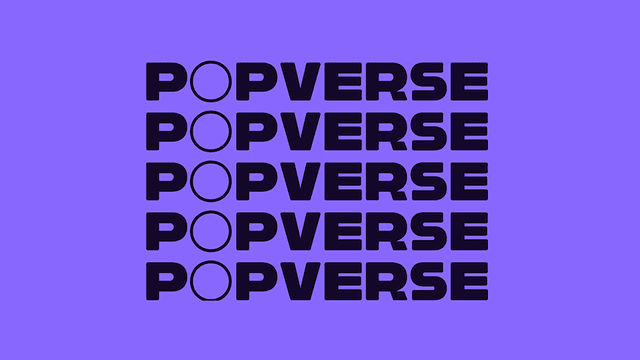If you click on a link and make a purchase we may receive a small commission. Read our editorial policy.
The Actors strike: why SAG-AFTRA are striking, and what it means for movies, TV, and conventions
Yes, actors are striking - here's why

Now in its third month, the current SAG-AFTRA strike — the first time film and television actors in the U.S. have gone on strike since 1980 — shows little sign of stopping any time soon, despite the forecasts (and, indeed, the expectations and hopes) of many studios to the contrary. Since its start on July 14, the strike action hasn’t just disrupted the production of the majority of movie and television shoots in North America, but it’s severely impacted public appearances beyond that — including this year’s San Diego Comic-Con and beyond.
What is going on? And what does this mean for the next few months of entertainment? We have some answers.
Who are the main players?
The two parties in this story are SAG-AFTRA and the AMPTP. Behind the acronyms, SAG-AFTRA is the Screen Actors Guild - American Federation of Television and Radio Artists, which represents somewhere in the region of 160,000 actors, recording artists, journalists and entertainment industry professionals across the world. The union was officially founded in 2012 as a merger of the Screen Actors Guild and the American Federation of Television and Radio Artists, which had been in existence since 1933 and 1937, respectively.
The AMPTP stands for the Alliance of Motion Picture and Television Producers, an organization that represents more than 350 TV and movie production companies in the US. Amongst that number are all the major studios, including Disney, Warner Bros. Discovery, Paramount Pictures, Apple TV+, Prime Video, and Netflix. The presence of those last three is particularly notable, given the importance of streaming in the breakdowns of negotiations.
As it stands currently, this strike only directly impacts those working under the 2020 TV working actor contract, and began July 13, 2023 at midnight.
Behind the breakdown
Negotiations between the two organizations ended June 13, with SAG-AFTRA released a statement that read, in part, “After more than four weeks of bargaining, the Alliance of Motion Picture and Television Producers (AMPTP) — the entity that represents major studios and streamers, including Amazon, Apple, Disney, NBCUniversal, Netflix, Paramount, Sony and Warner Bros. Discovery — remains unwilling to offer a fair deal on the key issues that are essential to SAG-AFTRA members. In the face of the AMPTP’s intransigence and delay tactics, SAG-AFTRA’s negotiating committee voted unanimously to recommend to the National Board a strike of the Producers-SAG-AFTRA TV/Theatrical/Streaming Contracts which expired July 12, 2023, at 11:59 p.m. PT.”
The AMPTP issues its own statement that read in part, “We are deeply disappointed that SAG-AFTRA has decided to walk away from negotiations. This is the Union’s choice, not ours. In doing so, it has dismissed our offer of historic pay and residual increases, substantially higher caps on pension and health contributions, audition protections, shortened series option periods, a groundbreaking AI proposal that protects actors’ digital likenesses, and more. Rather than continuing to negotiate, SAG-AFTRA has put us on a course that will deepen the financial hardship for thousands who depend on the industry for their livelihoods.”
The July 12 deadline was an extension from the original deadline of June 30; that extension had been agreed upon by both parties on the belief that a potential deal was close at hand. Amongst the subjects that SAG-AFTRA and the AMPTP couldn’t find agreement on were the use of artificial intelligence, better royalty and residual payments for streaming, and benefit payments. Negotiations this year ran just over three weeks, far shorter than previous negotiations; as Variety noted, 2017’s negotiations lasted a month, and 2014’s lasted two months.
Following writers’ lead
The strike means that both SAG-AFTRA and the Writers Guild of America have been striking simultaneously because of a failure to come to terms for studios and producers over terms for a new contract. It’s the first time both unions have been on strike at the same time since 1960. The WGA has been on strike since May 3 after failing the union and the AMPTA failed to come to an agreement on a new contract because of many of the same reasons actors and producers remained at odds, including seeking limits on the use of AI and better residual payments for streaming programming. A tentative agreement was reached between the WGA and the AMPTA on September 24, meaning an end to that strike is in sight after almost 150 days - but it's worth noting that WGA officials encouraged its members to picket on behalf of SAG-AFTRA even though their own pickets were being wound down; the connection between the two groups remains as strong as ever.
It's perhaps worth noting that a report in June 2023 quoted an unnamed studio executive saying that the plan regarding the WGA strike was to keep going until writers lost their homes and needed the work to live. According to estimates, the majority of SAG members are already relying on non-acting work to make a living. If a similar attitude is being taken by studio executives to an actors strike, how soon before the pain is felt?
A new contract between the Directors Guild of America and the AMPTP was announced in early June, avoiding a strike by directors on top of everything else.
What does this mean for audiences?
In practical terms, the SAG-AFTRA strike shuts down the majority of what few remaining film and television productions are still active in the US, as well as a number of international and overseas productions featuring actors who are SAG members, including the new Doctor Who season, the second seasons of both Andor and HBO’s House of the Dragon, and the big screen adaptation of hit musical Wicked.
The strike also prevents actors from promoting projects for studios, or attending junkets, which has impacted the release plans of multiple movies including Oppenheimer — whose cast famously walked out of the movie’s UK premiere when the strike was announced — and Warner Bros’ Blue Beetle, which resulted in outside groups trying to raise the movie’s profile pre-release. “It’s heartbreaking,” director Angel Manuel Soto said of the lack of ability for actors to promote the movie; he carried out the press tour for the movie solo, with experts suggesting the reduced press presence contributed to the movie's disappointing box office performance.
That also means that any public appearances by a SAG-AFTRA member - such as appearing at a comic convention - have to entirely avoid any work covered by SAG-AFTRA contracts for fear of otherwise accidentally breaking the strike. What that means in practice is that many actors will be entirely avoiding conventions for however long the strike lasts, while those who do show up can't talk about their work, no matter how much fans might want them to.
The possibility of an actors strike is something that many have been expecting for some time; in June, Anthony Mackie told an interviewer that he believed that it would be "a shit show" if it happened, and that studios would be forced to offer a fair deal sooner or later "unless they get a bunch of fucking YouTubers to make Avengers 5."
Not every production has shuttered, however; unlike the WGA, SAG-AFTRA offers ”interim agreements” for independent movies that agree to the union’s terms ahead of a wider agreement with the AMPTP. The scope of those interim agreements was tightened weeks later so that it would not include projects covered by the WGA. Around 200 productions are said to have signed such interim agreements.
How much is the strike costing?
In the immediate short term, the actors strike is not going to be noticeable onscreen in any way beyond a lack of high-profile promotion for movies across the next few months. In the medium-to-long term, however, an actors strike could prove a very big deal indeed: the 1980s actors strike, the last such major action, ran from July 21 through October 23 and meant that the launch of that year's fall TV schedule had to be heavily delayed. At the time, it was estimated that the strike cost the industry $40 million per week. And that was in 1980 dollars; adjusted for inflation, that's close to $150 million weekly.
At the beginning of August, Los Angeles mayor Karen Bass said that she was personally ready to intervene in both the SAG-AFTRA and WGA negotiations with studios and producers, issuing a statement that read, “This important inflection point for our city’s signature industry has caused ripple effects throughout our economy as well as that of the state and the country. The impact has spanned every corner of Los Angeles — from the writers and actors on the picket line trying to make ends meet to keep a roof over their head and food on the table, to businesses who rely on the entertainment industry. The economic conditions of the entertainment industry are changing — and we must react and evolve to this challenge. It is critical that this gets resolved immediately so that Los Angeles gets back on track and I stand ready to personally engage with all the stakeholders in any way possible to help get this done.”
Meanwhile, in mid-September, California governor Gavin Newsom gave an interview with CNN where it was suggested that the combined WGA and SAG-AFTRA action had cost the state somewhere in the region of $5 billion. "Probably more," was his response.
In other words: this goes far beyond just movies and TV.
This is an evolving story, as should be expected. Keep your eyes on Popverse for new developments as they happen.
The WGA strike has already led to delays for Marvel and DC programming. Expect more delays as the actors strike moves forward.
Follow Popverse for upcoming event coverage and news
Find out how we conduct our review by reading our review policy
Let Popverse be your tour guide through the wilderness of pop culture
Sign in and let us help you find your new favorite thing.
















Comments
Want to join the discussion? Please activate your account first.
Visit Reedpop ID if you need to resend the confirmation email.